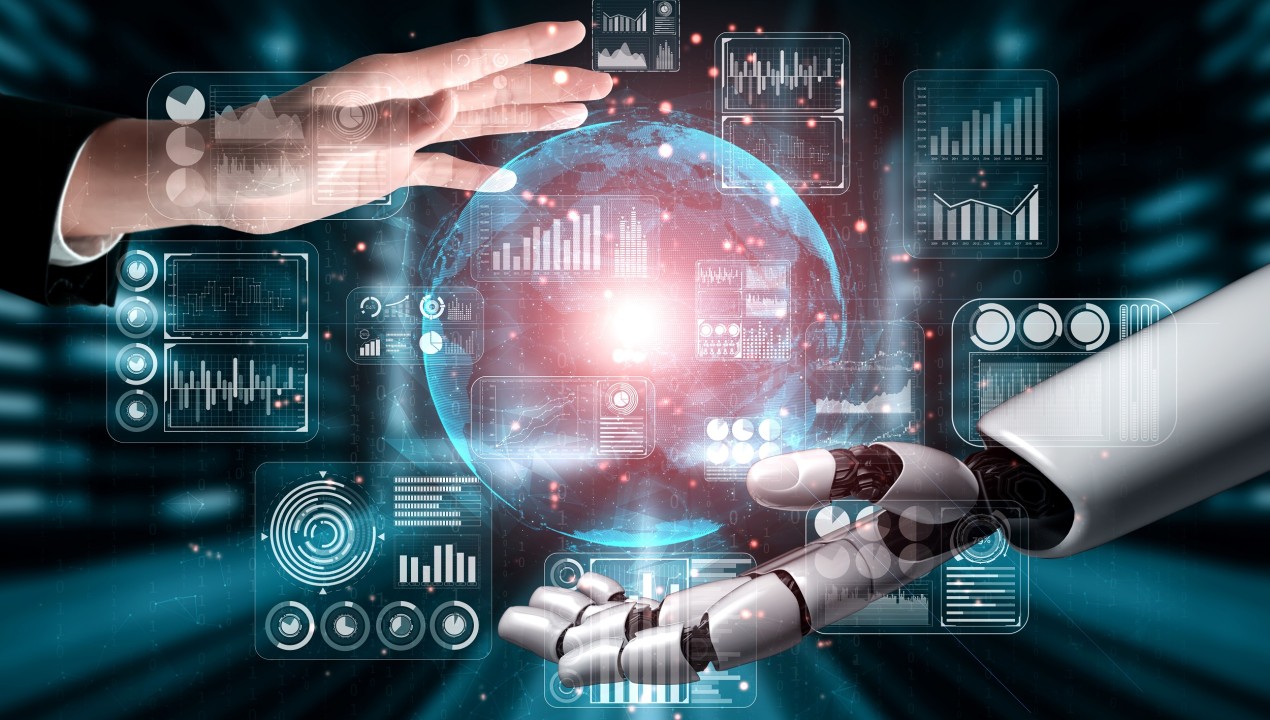In a world rapidly advancing in technology, the term “AI” often finds itself at the forefront of discussions. AI, or artificial intelligence, refers to the simulation of human intelligence processes by machines, especially computer systems. This revolutionary technology encompasses a wide range of capabilities, including machine learning and deep learning. In this comprehensive article, we will explore the profound impact of AI on various industries and discuss its applications, benefits, and future prospects.
The Powerhouse of AI Technology
AI technology is not merely a buzzword; it’s a transformative force that is reshaping industries across the globe. At its core, AI is all about enhancing efficiency and productivity by automating tasks that once demanded human intervention. This automation not only saves time but also drives cost-effectiveness, making AI a strategic imperative for businesses aiming to stay competitive.
Unravelling the Potential: Machine Learning and Deep Learning
To understand the scope of AI, we need to delve into its subfields, particularly machine learning and deep learning. These components empower AI systems to learn from data and adapt to new information. Machine learning enables algorithms to make predictions and decisions, while deep learning mimics the neural networks of the human brain, allowing AI to process vast amounts of data with remarkable accuracy.
AI in Action: Real-World Applications
Now that we’ve grasped the essence of AI, let’s explore some captivating examples of how it is being harnessed in technology-driven sectors:

1. Self-Driven Cars
The automotive industry is undergoing a seismic shift with the emergence of self-driving cars. AI-powered vehicles use sensors and algorithms to navigate roads, making transportation safer and more efficient.
2. High-End Robotics
From manufacturing to healthcare, high-end robotics equipped with AI are taking over tasks that require precision and dexterity, often surpassing human capabilities.
3. AI-Driven Traffic Management
In smart cities, AI optimizes traffic flow, reduces congestion, and enhances safety by analyzing real-time data from cameras and sensors.
4. Smart Grid Maintenance
AI plays a pivotal role in managing electrical grids efficiently, ensuring power availability and minimizing outages.
5. Thermostat Devices with AI
Smart thermostats equipped with AI algorithms adjust temperatures based on user preferences and weather conditions, optimizing energy consumption.
6. Smart Speakers
Virtual assistants like Alexa and Siri use AI to understand and respond to natural language, making our lives more convenient.
7. Chatbots
AI-driven chatbots provide instant customer support, answering queries and resolving issues 24/7, improving user satisfaction.
8. Healthcare Management
artificial intelligence is revolutionizing industries? aids healthcare professionals in diagnosing diseases, predicting patient outcomes, and streamlining administrative tasks.
9. Automated Financial Investing
Robo-advisors use AI algorithms to manage investment portfolios, providing personalized financial strategies to investors.
10. Social Media Monitoring
AI analyzes vast amounts of social media data to track trends, sentiment, and user behavior, helping businesses make informed decisions.
11. Marketing Chatbots
In the marketing realm, AI chatbots assist with lead generation, customer engagement, and personalized marketing campaigns.
These examples merely scratch the surface of AI’s influence. With AI becoming increasingly integral to various industries, its applications are expected to grow exponentially in the future.
FAQs about AI in Technology
Let’s address some frequently asked questions about AI’s role in technology:
How does AI benefit businesses?
AI improves efficiency, reduces operational costs, and enhances customer experiences, leading to increased revenue and competitiveness.
Is AI a threat to human jobs?
While AI automates certain tasks, it also creates new job opportunities in AI development, maintenance, and oversight.
What industries will AI disrupt the most?
AI has the potential to disrupt healthcare, finance, manufacturing, and transportation industries, among others.
Can AI replace human creativity?
AI can assist in creative processes but lacks the emotional and intuitive aspects of human creativity.
How is AI regulated to ensure ethical use?
Governments and organizations are working on AI ethics and regulations to prevent misuse and ensure transparency and fairness.
What are the challenges of implementing AI?
Challenges include data privacy concerns, biases in AI algorithms, and the need for skilled AI professionals.
Conclusion: The AI Revolution
In conclusion, artificial intelligence in technology is not just a trend; it’s a transformative force revolutionizing industries across the board. From self-driving cars to healthcare management, AI’s applications are diverse and far-reaching. While it brings about incredible opportunities, it also necessitates ethical considerations and regulatory frameworks. As AI continues to evolve, embracing its potential while addressing its challenges will be key to a prosperous and technologically advanced future.

